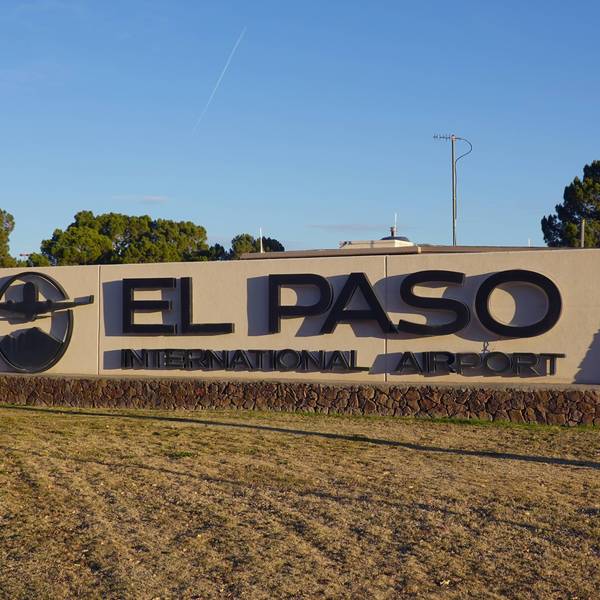"Pacifica Station Bombed Off Air," read the Houston Chronicle's banner headline on May 13, 1970. KPFT, Houston's fledgling community radio station, had been on the air for just two months when its transmitter was blown to smithereens. "An explosion which demolished the transmitter of Houston station KPFT-FM (Pacifica Radio) was no accident and apparently the work of experts, authorities said today," George Rosenblatt of the Chronicle wrote. "The blast occurred at 11 p.m. Tuesday. The station was playing 'Alice's Restaurant' and at the precise moment of the explosion, Arlo Guthrie was singing, 'Kill, kill, kill' as he spoofed the draft."
The attack on KPFT was no spoof. Someone had placed dynamite and destroyed the transmitter. The KPFT staff and volunteers rebuilt the transmitter, and got the station back on the air--this time with a concrete-reinforced transmitter shack. But by October, this time with 15 sticks of dynamite instead of just one, the anonymous attackers again destroyed the transmitter. KPFT remains, to this day, thankfully, the only radio station in U.S. history to have been blown up.
Recovery from the second, more serious blast took longer. When the station went back on the air in January 1971, Arlo Guthrie was there in Houston, picking up where he left off, finishing his famous song "Alice's Restaurant" in person. KPFT had been blown up twice, but the bombers did something for KPFT that, with no marketing budget, it couldn't have done on its own: The station was blasted into the consciousness of the potential listening audience in Houston.
An investigation after the bombings led to the conviction of Jimmy Dale Hutto, the Grand Dragon of the local Ku Klux Klan. Hutto said blowing up KPFT was his proudest act. When you consider the Pacifica Radio network and its rich history, it is no surprise that a hate group like the KKK would target it. Pacifica Radio provides a forum for people to speak for themselves, breaking down stereotypes and caricatures that fuel hate.
Pacifica Radio was founded by Lew Hill, a pacifist who refused to fight in World War II. When he came out of a detention camp after the war, he said the United States needed a media outlet that wasn't run by corporations that profit from war, but instead run by journalists and artists--or as the late George Gerbner, former dean of the Annenberg School for Communication at the University of Pennsylvania, said, not run by "corporations with nothing to tell and everything to sell that are raising our children today."
KPFA, the first Pacifica station, began in Berkeley, Calif., on April 15, 1949. Pacifica Radio tried something no one thought would work: building a network based on the voluntary financial support of individual listeners, a model later adopted by all of public radio and television. The Pacifica network grew to five stations: KPFA in Berkeley, KPFK in Los Angeles, WBAI in New York, WPFW in Washington and KPFT in Houston.
The Pacifica network broke important stories and never shied away from controversy, especially when covering social movements. Luminaries from the civil rights movement, like Paul Robeson and Harry Belafonte, were regularly heard on the airwaves. African-American writer James Baldwin was broadcast debating Malcolm X on the value of nonviolent sit-ins. WBAI in New York City sent reporter Chris Koch to North Vietnam in 1965 as the first U.S.-based reporter to cover the war from the North. Musicians like Bob Dylan and Jerry Garcia of the Grateful Dead got their first over-the-air broadcasts on Pacifica stations.
Forty-five years after the bombings, KPFT continues to broadcast in Houston, serving the public as a beacon of alternative perspectives and a hub of local news and culture. Some say the bombings weren't aggressively investigated because of the close relationship between the local KKK and the Houston police. Today, we are facing a crisis of racial profiling and police targeting communities of color with seeming impunity. While there has been a significant spike in hate-group activity since Barack Obama was elected president, more significant and enduring change has taken root over the decades.
Five years before the first bombing of KPFT, on Feb. 26, 1965, Martin Luther King Jr. spoke at the Temple Israel of Hollywood in California, saying, "The arc of the moral universe is long but it bends toward justice." He went on, "We shall overcome because William Cullen Bryant is right: 'Truth crushed to earth will rise again.'" KPFT, Pacifica's radio station in Houston, was crushed to earth, twice in 1970. But it rose again and again, and has been using the public airwaves to help bend that arc of the moral universe toward justice, for 45 years.
Denis Moynihan contributed research to this column.



